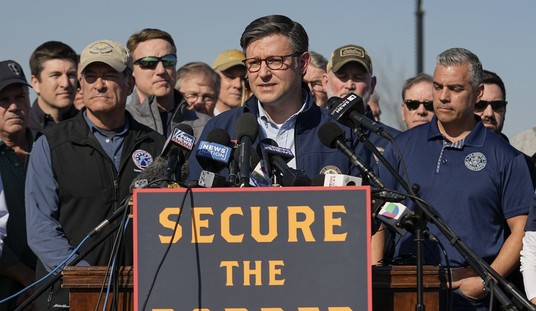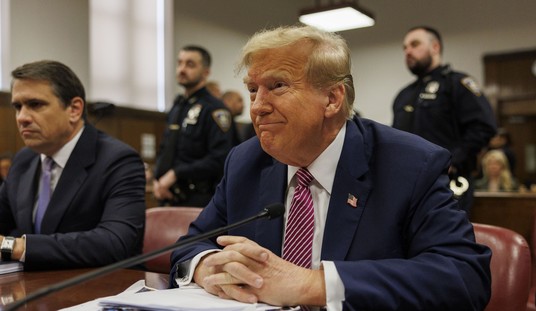Happy may oversell the sentiment, but Sidney Blumenthal offered no objections to his subpoena — publicly, at least. Blumenthal actually didn’t say much at all, other than his e-mails to Hillary Clinton on Benghazi were just unsolicited information that he offered as “a private citizen and a friend”:
Sidney Blumenthal, a longtime adviser who sent then-Secretary of State Hillary Rodham Clinton more than two dozen back-channel reports about unrest in Libya, said on Thursday night that he provided it “as a private citizen and friend,” and that it was merely information “I thought she might find interesting or helpful.”
Those messages, sent at a time when Blumenthal was working for the Clinton family foundation and with entrepreneurs who hoped to do business in Libya, have drawn the interest of the House Select Committee on Benghazi, which is investigating the 2012 attack in which U.S. ambassador J. Christopher Stevens and three other American officials were killed.
The panel subpoenaed Blumenthal to testify, and he said in the statement, issued through his lawyer James M. Cole, that he “will cooperate with its inquiry and look forward to answering the Committee’s questions.”
The problem for Blumenthal with this line of defense is that he wasn’t just a “private citizen and a friend.” He also worked for the Clintons at their foundation, did work for the political action committee American Bridge and Media Matters, and was trying to drum up business in Libya with people who benefited from the fall of Qaddafi. Some or all of that appears to have taken place simultaneously. How much those conflicts of interest drove US policy in Libya will be of considerable interest to the Benghazi Select Committee.
Rep. Mike Pompeo hints at this in an interview with Luke Russert yesterday, saying that they need to drill down to the “motivations” of Hillary’s sources:
https://www.youtube.com/watch?v=31TmVCXn1i0
Russert offers an odd interpretation of the second Blumenthal e-mail on the Benghazi attack, saying that his change from blaming it on the YouTube video on 9/12 to telling Hillary it was an Ansar al-Sharia attack planned for a month “vindicates” Hillary. How would it do that when Hillary went to families the next day blaming the video for provoking a rage-filled demonstration that killed their relatives? Hillary and Barack Obama continued to use the false “YouTube video” narrative for another two weeks, including an infamous UN speech from Obama that snuggled up close to an endorsement for blasphemy laws? Pompeo laughs out loud at the suggestion, but wisely keeps his powder dry … perhaps hoping Blumenthal will try that defense out in a couple of weeks.
John Heileman and Mark Halperin give Bloomberg viewers a “dossier” on Blumenthal and Cheryl Mills, another long-time Hillary Clinton advisor:
Mills emerged as another intriguing figure in a different aspect of the same broader scandal yesterday. The Wall Street Journal’s Laura Meckler put the spotlight on Mills as the hatchet person who has frustrated legitimate FOIA demands at State:
When Hillary Clinton was secretary of state, her staff scrutinized politically sensitive documents requested under public-records law and sometimes blocked their release, according to people with direct knowledge of the activities.
In one instance, her chief of staff, Cheryl Mills, told State Department records specialists she wanted to see all documents requested on the controversial Keystone XL pipeline, and later demanded that some be held back.
In another case, Ms. Mills’s staff negotiated with the records specialists over the release of documents about former President Bill Clinton’s speaking engagements—also holding some back.
The records requests came under the Freedom of Information Act, or FOIA, the public’s main tool to get information from the government. Decisions on what to release belong with each agency’s FOIA staff, say experts on the law, to guard against the withholding of documents for political or other inappropriate reasons.
The revelation that Hillary secretly used a private e-mail system has transformed Mills’ efforts from hard-nosed diligence to something more conspiratorial. This issue may emerge more in the courts, where at least one judge has reversed earlier FOIA issues on the basis of deception by State during Mills’ time there. Congress may well want to look into the matter, as Mills’ involvement in the Benghazi issue comes into clearer focus, but that may take a back seat to the main issues arising from the probe — namely, how State and the White House ignored the collapse of Libya and were so unprepared for its consequences that it led to the death of four Americans.







Join the conversation as a VIP Member